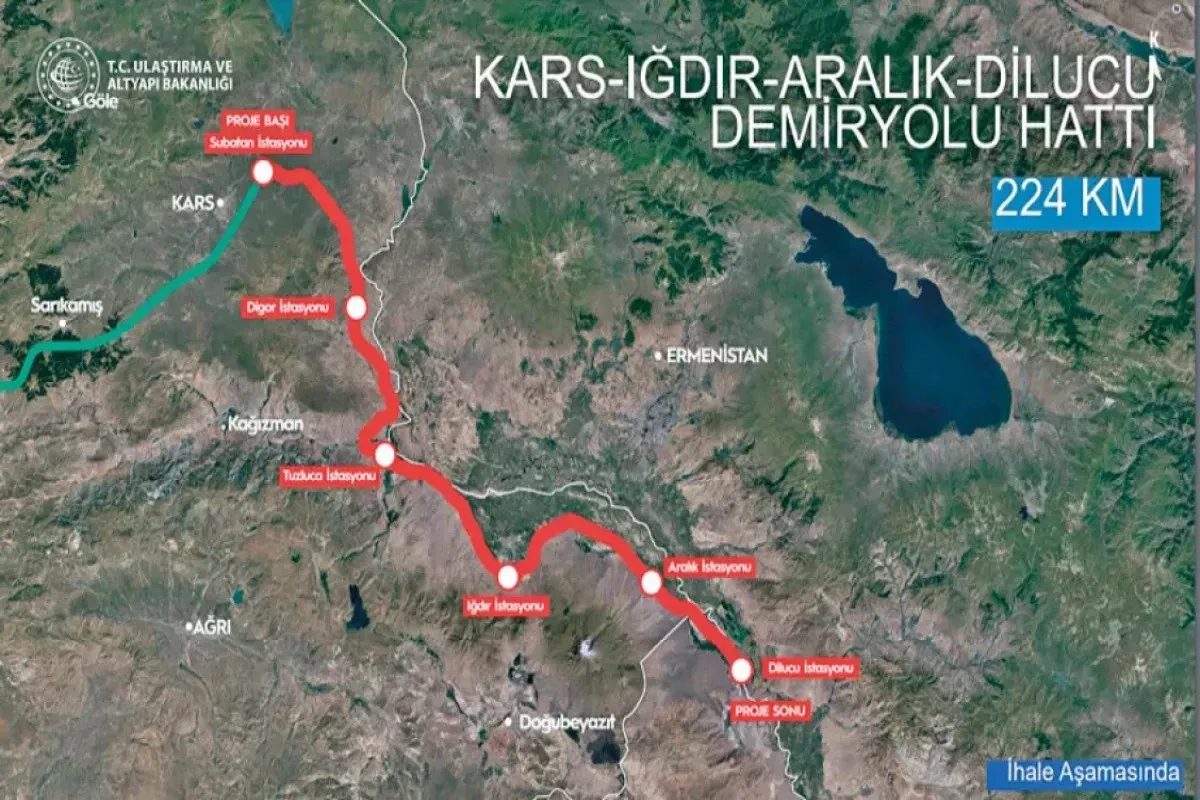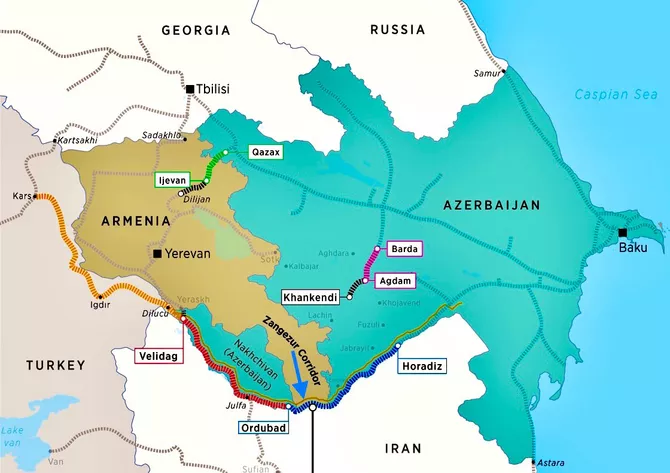
The quiet Turkish city of Iğdır may not usually make international headlines. Yet on August 22, a groundbreaking ceremony there sent powerful ripples across the South Caucasus and beyond. The launch of the Kars-Iğdır-Aralık-Dilucu railway is not merely an infrastructure project; it is a geopolitical statement. At a time when Washington-brokered agreements have reignited discussion of the Zangezur Corridor, Türkiye and Azerbaijan are taking decisive steps to cement their connectivity on their own terms.
According to Türkiye’s Transport and Infrastructure Minister Abdulkadir Uraloğlu, the 224-kilometer line will run directly to the Nakhchivan border. With a planned annual capacity of 5.5 million passengers and 15 million tons of freight, it is designed not just as a railway but as a lifeline. Along its route will rise five tunnels, ten bridges, and dozens of engineering works - symbols of persistence in the face of geography and politics alike.

What makes this project resonate is not only its technical ambition but its political symbolism. The line will be part of the East-West Corridor, extending the logic of the Zangezur project and, in Uraloğlu’s words, serving as “the key” to that corridor. If completed by 2028, as scheduled, it will reshape not only Nakhchivan’s destiny but the balance of transit power across the region.
Azerbaijan, for its part, is not standing still. Just a day before the Turkish ceremony, President Ilham Aliyev announced in Kalbajar that a feasibility study for modernizing Nakhchivan’s railways is already complete. After decades of blockade - imposed since the outbreak of the Karabakh conflict - Nakhchivan’s railways have survived largely by sustaining routes toward Iran. Now, Baku envisions turning the enclave into a genuine transit hub. Azerbaijan Railways CJSC has openly spoken of building a network to international standards, capable of ensuring both secure and timely delivery of goods and passengers.
The long-term implications are clear. Once the Kars-Nakhchivan line becomes operational, it will integrate into the Middle Corridor - the east-west route linking China with Europe. Nakhchivan, long isolated, will suddenly emerge as a pivot point on this modern Silk Road. For Türkiye, the line accelerates its declared ambition to become a “logistics superpower.” By connecting ports and strengthening its role in the Baku-Tbilisi-Kars railway corridor, Ankara is positioning itself as the indispensable bridge between Europe and Asia.
This vision is not new. Plans for the Iğdır-Nakhchivan link were floated as far back as 2012, when then-Prime Minister Erdoğan promised that such a railway would bind Türkiye and Azerbaijan more closely together. But the decisive push came in the aftermath of the Second Karabakh War. Armenia’s obligation under the Trilateral Statement to open the Zangezur Corridor gave Ankara the green light it had long awaited. Within days, Türkiye declared its intent to lay track toward Azerbaijan’s border.

What is unfolding today is more than a transport project. It is a realignment of geography in service of politics. Once the line is completed, the trip from Kars to the Azerbaijani border at Dilucu will take just 85 minutes - shrinking distances and multiplying opportunities. Turkish construction giants Kalyon and Cengiz İnşaat have already mobilized hundreds of specialists, and the project is moving forward with a momentum that recalls the boldest chapters of the Silk Road.
The railway is already being dubbed the “Rail Silk Road.” That is no exaggeration. By granting Nakhchivan direct access to China, Europe, and the Gulf, the project promises to transform the autonomy from an isolated enclave into a strategic gateway. More than economics is at stake. This line carries with it the promise of political stability, regional integration, and the rebalancing of power in a contested corner of Eurasia.
In 2021, Aliyev and Erdoğan signed a memorandum in Ankara declaring the Kars-Iğdır-Aralık-Dilucu-Sadarak-Nakhchivan-Julfa line a historic project. Aliyev predicted then that it would serve not only Azerbaijan and Türkiye but also “other countries.” That prediction is now on the path to reality.
As with all great projects, the railway’s significance lies not in its steel and concrete but in its symbolism. It is the materialization of a vision: that the South Caucasus, long fragmented by conflict, can instead be united by rails, roads, and shared ambition. And it is a reminder that geography is not destiny. With determination, even an isolated autonomy like Nakhchivan can become a bridge - and perhaps, one day, the beating heart of a new Silk Road.
By Tural Heybatov
Share on social media